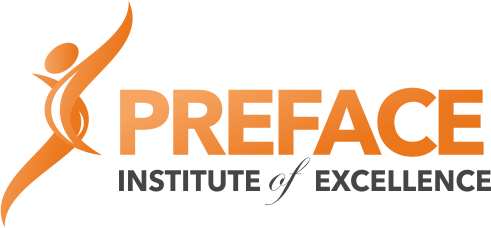INTRODUCTION
The educational landscape is replete with diverse approaches to fostering academic excellence, personal growth, and character development in young minds. Among these, boarding schools stand out for their unique ability to nurture not only academic prowess but also essential social skills. In this exploration, we delve into the distinctive ways in which boarding schools play a pivotal role in shaping well-rounded individuals by cultivating social skills in the formative years of their students.
- Communal Living Fosters Interpersonal Bonds:
At the heart of the boarding school experience is communal living. Living in shared dormitories, students are immersed in an environment that encourages social interaction from the moment they wake up to the time they retire for the night. This constant proximity provides ample opportunities for students to form deep and meaningful interpersonal bonds, creating a unique camaraderie that becomes a cornerstone of their social development.
- Diversity Breeds Understanding:
Boarding schools often attract students from diverse backgrounds, both culturally and geographically. This rich tapestry of diversity exposes students to a myriad of perspectives, traditions, and customs. Learning to navigate and appreciate this diversity fosters empathy, tolerance, and a broader understanding of the world—an invaluable skill set for effective social interaction throughout life.
- Independence Promotes Responsibility:
Living away from the comforts of home encourages independence and self-reliance in boarding school students. With the responsibility of managing their daily routines, chores, and academic commitments, students develop a sense of accountability. This not only nurtures their ability to take charge of their lives but also instills the importance of responsibility in social relationships, both within and outside the boarding school community.
- Collaborative Learning and Teamwork:
Boarding schools often emphasize collaborative learning and teamwork in both academic and extracurricular activities. From group projects to sports teams, students engage in activities that require effective communication, cooperation, and compromise. These experiences lay the foundation for essential social skills such as teamwork, leadership, and conflict resolution.
- Small Class Sizes Encourage Participation:
Boarding schools often maintain smaller class sizes compared to traditional day schools. This smaller student-to-teacher ratio fosters an environment where every student is encouraged to actively participate in class discussions, ask questions, and express their opinions. Such engagement is instrumental in developing effective communication skills, boosting confidence, and nurturing the ability to articulate thoughts clearly—a valuable asset in social interactions.
- Social Support System:
The close-knit nature of boarding school communities creates a built-in support system. Students share not only living spaces but also common experiences, triumphs, and challenges. This support network plays a crucial role in emotional well-being, providing a safety net for students as they navigate the ups and downs of adolescence. Developing a sense of trust and reliance on others contributes significantly to their ability to form and maintain healthy social relationships.
- Exposure to Extracurricular Activities:
Beyond the classroom, boarding schools offer a plethora of extracurricular activities, from sports to arts, encouraging students to explore and pursue their interests. Engaging in these activities provides a platform for social interaction beyond academic settings. Whether it’s being part of a drama production, a sports team, or a debate club, students learn to collaborate, share responsibilities, and celebrate collective achievements.
- Mentorship and Guidance:
Boarding schools often have a strong mentorship system in place, where students have access to faculty members who not only guide them academically but also provide invaluable life advice. These mentor-student relationships serve as a foundation for understanding the nuances of social dynamics, helping students navigate relationships with peers and authority figures alike.
- Constructive Conflict Resolution:
Living in close quarters naturally brings about conflicts and disagreements. Boarding schools provide a controlled environment where students can learn to address conflicts constructively. Whether through facilitated discussions, mediation, or peer counseling, students develop the skills to resolve disputes amicably—a vital aspect of social skills that carries into adulthood.
- Leadership Opportunities:
Boarding schools often present numerous opportunities for students to take on leadership roles. Whether as prefects, team captains, or club presidents, students learn to lead by example, make decisions, and inspire their peers. These leadership opportunities contribute significantly to the development of social skills such as effective communication, empathy, and the ability to motivate and collaborate with others.
Conclusion:
In the crucible of boarding school life, young minds undergo a transformative journey that extends far beyond the confines of academics. The intentional focus on communal living, diversity, independence, collaborative learning, and extracurricular engagement all work in concert to nurture social skills in a holistic manner. Boarding schools emerge as environments where students not only excel academically but also develop into socially adept individuals equipped with the interpersonal skills needed to thrive in the complexities of the ever-evolving social landscape. As these students embark on their future endeavors, the social skills honed in boarding schools become an enduring asset, shaping not just their success but also the positive impact they can have on the world around them.
Preface Institute of Excellence: Shaping Futures for Boarding School Entrance
Nestled in the heart of Gurugram, Preface Institute of Excellence stands as a beacon for students aspiring to embark on the transformative journey of boarding school education. With a commitment to academic excellence and holistic development, Preface Institute has become a trusted name in preparing students for the challenges of boarding school entrance exams.
The institute’s dedicated faculty, comprised of experienced educators and mentors, employs a multifaceted approach to coaching that goes beyond exam readiness. Preface Institute focuses on nurturing the whole student, offering personalized attention, skill-building workshops, and emotional support crucial for success in both exams and the unique environment of boarding schools.
Whether through traditional offline coaching or innovative online programs, Preface Institute harnesses cutting-edge teaching methodologies to cater to the diverse needs of students. The institute’s success is measured not just by the number of students who excel in entrance exams but by the well-rounded individuals who emerge, equipped with the academic prowess and social skills necessary to thrive in the boarding school setting.
As Preface Institute of Excellence continues to play a pivotal role in shaping futures, its commitment to providing a robust foundation for boarding school success remains unwavering, making it a trusted partner in the educational journey of aspiring students in Gurugram and beyond.
To begin your journey with Preface towards your dream school, Click here







